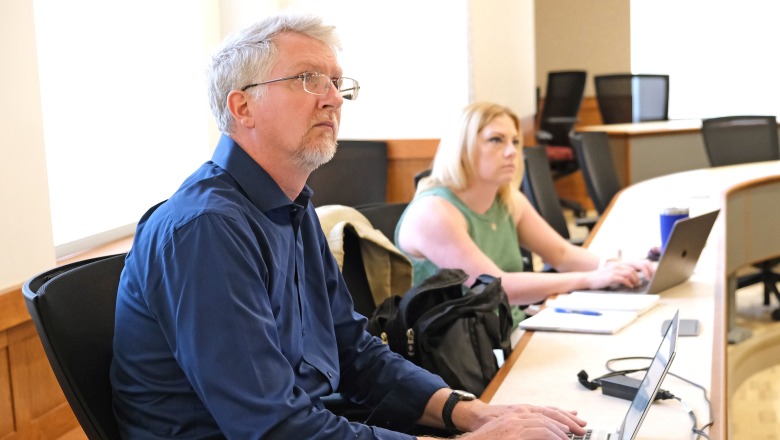
The state Department of Higher Education has awarded Fitchburg State University a grant worth nearly $75,000 to fund institutional efforts to better support students, including training for faculty and staff.
The grant came from the state’s Higher Education Innovation Fund.
The project builds on the university’s implementation of Dr. Paul Hernandez’s “Pedagogy of Real Talk” (PRT), which focuses on engaging, teaching and connecting with students at risk. The approach relies on an understanding of the student as a human being, and seeks to create an inclusive, relationship-rich, and student-centered learning environment.
The PRT model is embedded in Fitchburg State’s Faculty Academy, in which cohorts of faculty from across disciplines meet to examine their own practice and incorporate these approaches to dismantle the barriers between faculty and individual students.
Members of the faculty academy have published their own paper on the adoption of PRT and report an increased sense of belonging among students.
“Research has shown that this approach helps students feel as though they are part of a community of scholars within the classroom,” said Fitchburg State Provost and Vice President for Academic Affairs Patricia Marshall. “When students feel they can contribute to the discussion, they know they belong and can thrive in that environment.”
Professor Sean Goodlett of the university’s Economics, History and Political Science Department, the grant’s lead author, said the program aligns with the 2023-2033 Strategic Plan for Racial Equity advanced by the state Department of Higher Education as well as Fitchburg State’s own strategic plan.
The latter plan cites the need to provide all members of the campus community equitable access to opportunity, and to eliminate barriers to the retention, participation, and advancement of talented students, faculty, and staff from historically excluded or under-represented populations. Fitchburg State’s student population is becoming increasingly diverse, Goodlett added.
Associate Professor of Behavioral Sciences Dr. Kori Ryan is the principal investigator for the grant. She said the program, aligned as it is with the state’s with the state’s Strategic Plan for Racial Equity has been transformative.
“The Faculty Academy addresses issues of equity from a place of respect and care for our students, and understanding the perspectives and experiences they bring to the classroom, but from a strengths-based model,” Ryan said. “Historically, many of our students have experienced trauma in their lives, but also in their educational experiences. The racial equity plan specifically addresses this in a variety of ways.”
These include acknowledging and including the experiences of students, providing more holistic support services, increasing a sense of belongingness not just of students but of faculty, and reducing harm in the classroom, Ryan said.
“The Faculty Academy, and the soon-to-be Staff Academy, provide faculty with a mindset and tools to see our students as true partners in education,” Ryan continued. “It’s a simple, but not simplistic model with demonstrated efficacy for students. The faculty and staff at Fitchburg State are really fortunate to be a part of this work because it is a tangible way for us to improve the experiences of our students in partnership with their success.”
The newly announced grant will allow the faculty academy to be expanded through the adoption of a “train the trainer” model within the institution, as well as the creation of a staff academy. The long-term vision for the program would incorporate the approach to other state universities.
“Every member of the Fitchburg State student body, faculty and staff must feel respected, heard, affirmed, supported, and valued,” Goodlett said, quoting from the strategic plan. “Training faculty to broaden the implementation of this approach, and training staff members to contribute to this work, will further support students.”
Goodlett also cited the contributions of Jeanette Robichaud and Megan Boyd from the university’s grant center in securing the funds, as well as faculty colleagues including Assistant Professor Wafa Unus from the English Studies Department.